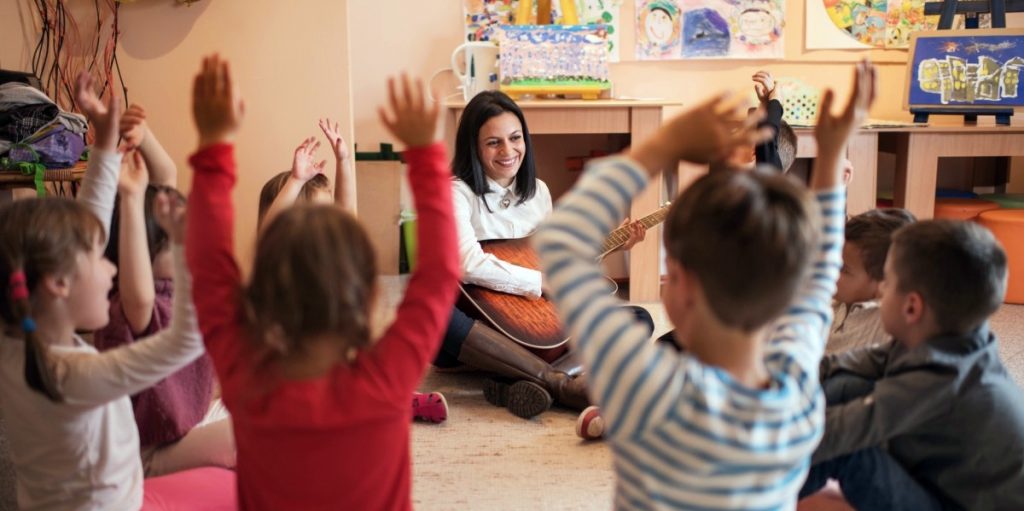Music is a universal form of expression that transcends cultural and linguistic barriers. Its introduction in schools is extremely important, as it not only enriches the educational environment, but also promotes the integral development of students. Music education provides students with tools to explore creativity, discipline and collaboration, essential skills for the contemporary world.
From the first years of life, contact with music plays a fundamental role in children’s cognitive and emotional development. Through music, games and rhythms, students learn to socialize, share space and respect others. These aspects are vital for building a healthy and collaborative school environment.
Furthermore, music has a positive impact on memory and concentration. Studies show that musical activities can improve learning ability and information retention. When learning to play an instrument, for example, students exercise motor coordination and patience, skills that will be useful in different areas of life.
In school curricula, music can be integrated in different ways. Singing lessons, music appreciation, instrumental theory and practice are some of the approaches that can be adopted. Furthermore, music can be used as a pedagogical tool in other subjects, facilitating the teaching of languages, mathematics and science, through songs that illustrate concepts.

The inclusion of music in schools is also a way to promote cultural diversity. By exploring different musical styles, such as local folklore, classical music, or jazz, students develop a broader understanding of the world around them. This diversity contributes to the formation of citizens who are more empathetic and respectful of differences.
Finally, it is essential that schools have qualified professionals to teach music. Passionate and well-prepared teachers can inspire students to pursue their musical skills, whether as a hobby or as a possible career. It is also important to promote extracurricular activities, such as choirs, bands and presentations, that encourage musical practice and the appreciation of teamwork.
In short, introducing music in schools is a valuable strategy for student development. It goes beyond teaching notes and rhythms, providing experiences that shape personality, fostering creativity and promoting a more comprehensive education. Investing in musical education is, without a doubt, investing in the future of our children and in building a richer and more diverse society.






dope stuff my friend. keep up
Where words fail, their voice begins.
Music in schools makes children happier
A música tem tantos pontos positivos, super importante as crianças terem contato com isso desde cedo nas escolas.
Incredibly informative! I now have a much greater appreciation for the roots of this genre. The historical context you provided really enhances the listening experience
Radio Mix 2021 – The Decline: A journey through fading frequencies and evolving soundscapes.
Fostering creativity and harmony, music ignites young minds.
A música traz alegria e união, tornando o ambiente escolar mais acolhedor e colaborativo!
A introdução à música estimula a criatividade e a imaginação dos alunos. Eles são incentivados a criar, compor e improvisar, habilidades essenciais em muitas áreas da vida.
A prática musical está associada à redução do estresse e à promoção de bem-estar emocional. A música pode servir como uma forma de relaxamento e uma maneira de os alunos lidarem com a ansiedade ou pressão.